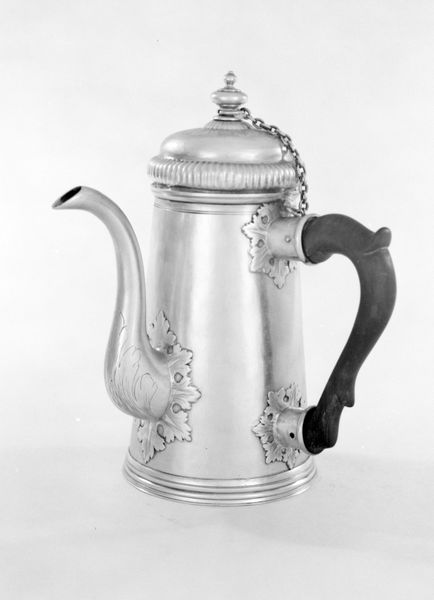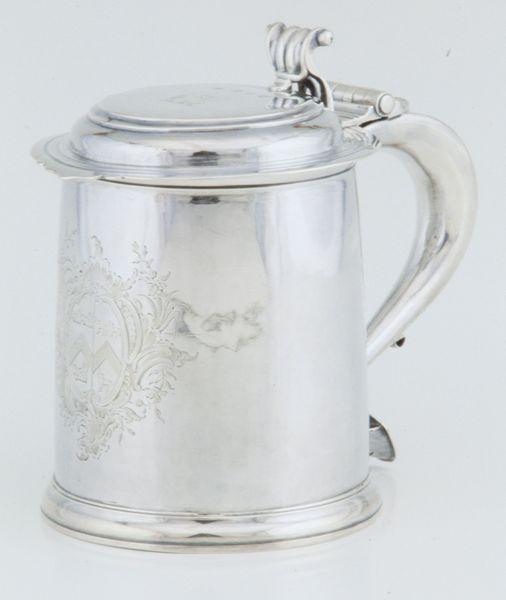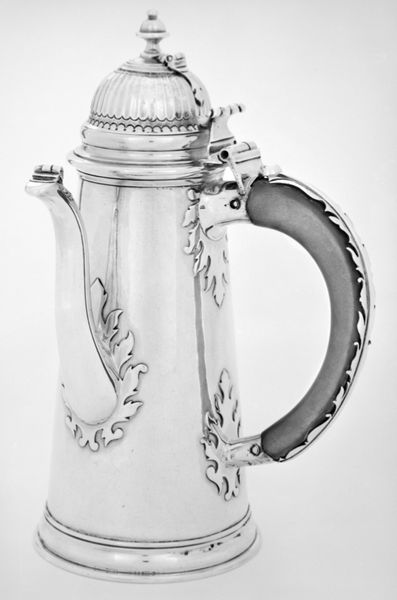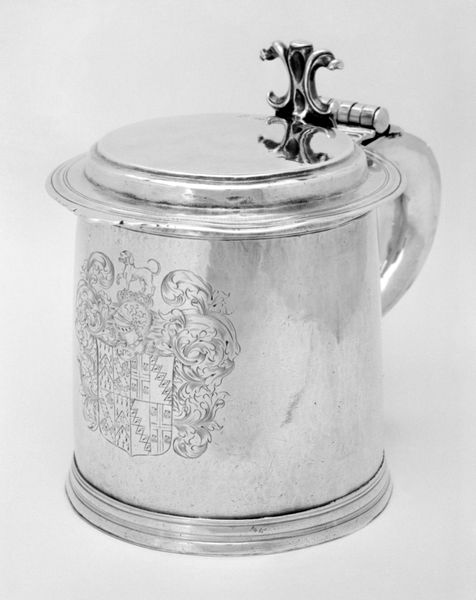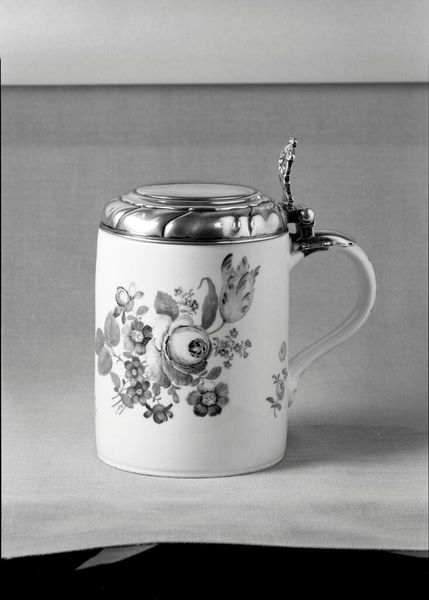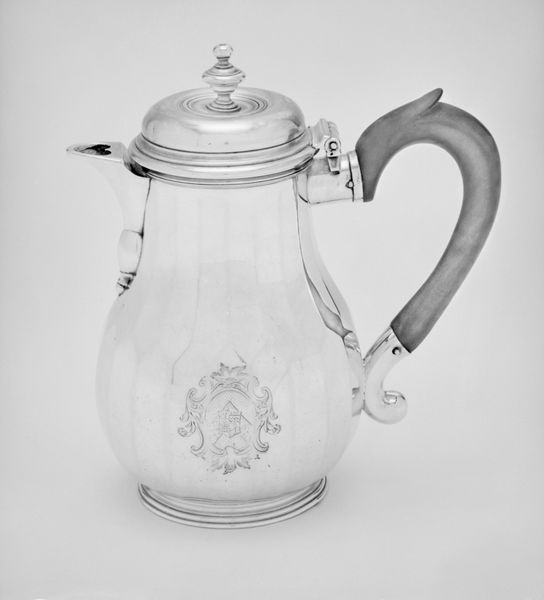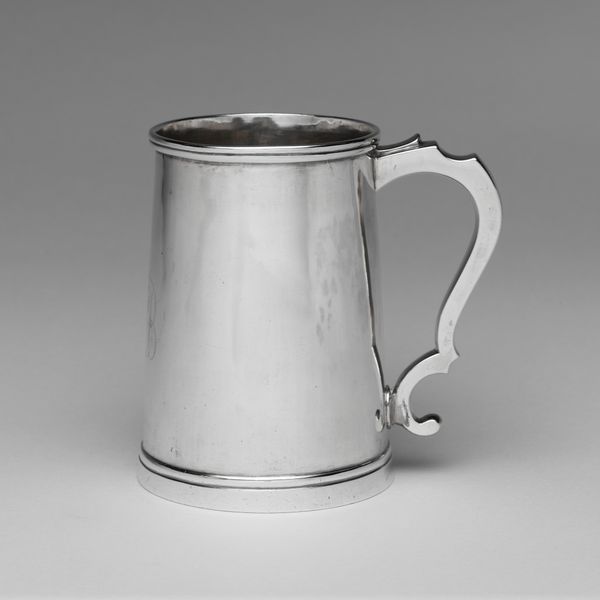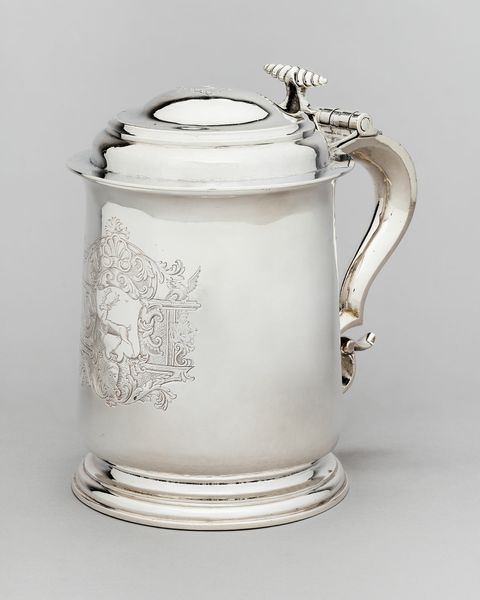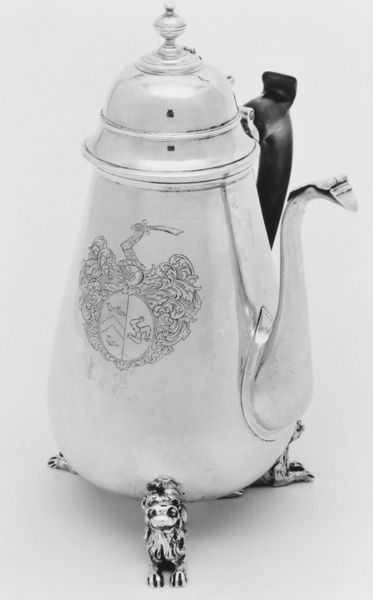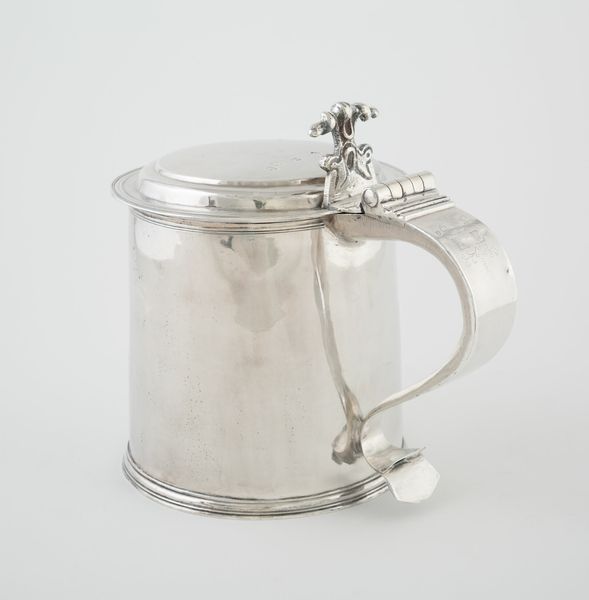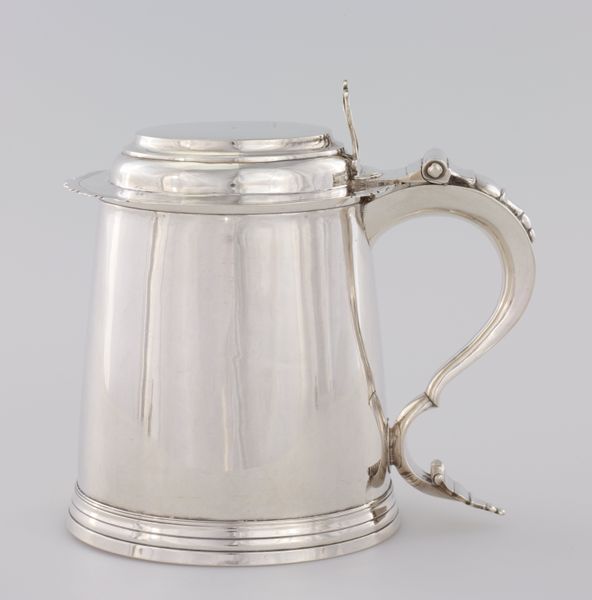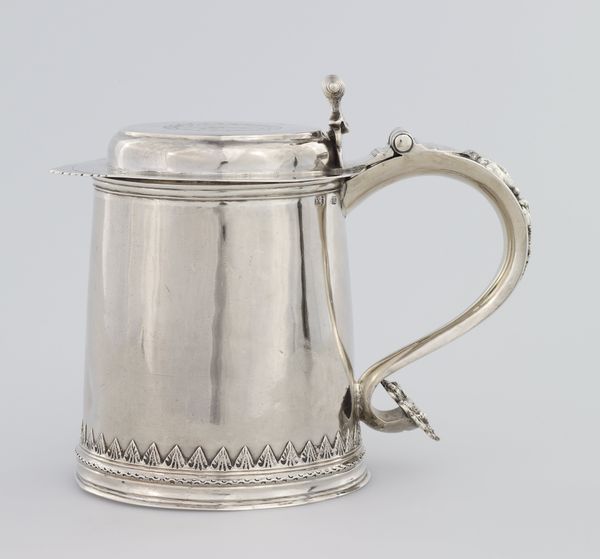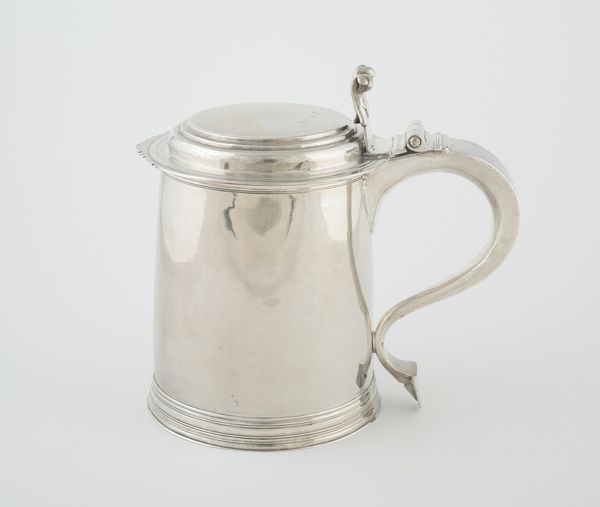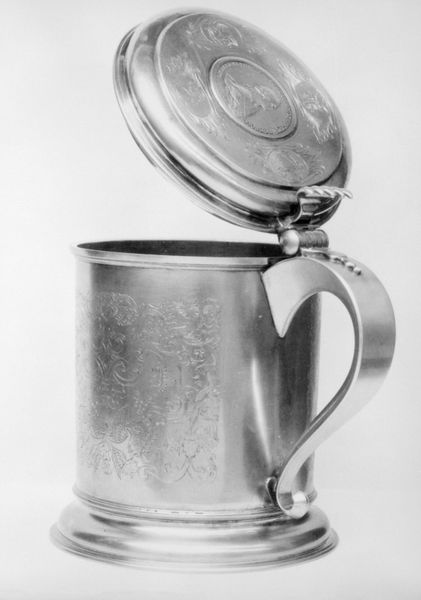
Shaving cup with cover and handle; soap dish (part of a set) 1848 - 1849
0:00
0:00
silver, sculpture
#
silver
#
wedding photograph
#
cake food
#
swirl
#
old engraving style
#
wood background
#
culinary art
#
appetizing
#
food illustration
#
stoneware
#
wash background
#
sculpture
#
decorative-art
Dimensions: a) H. (w/ cover) 3 7/8 in. (9.8 cm); W. 2 3/4 in. (7cm); L. (w/ handle) 5 1/2 in. (14 cm); L. (w/o handle) 3 1/2 in. (8.9 cm); b) 7/16 x 2 13/16 x 3 3/8 in. (1.1 x 7.1 x 8.6 cm); c) 4 1/2 x 5/8 x 1 15/16 in. (11.4 x 1.6 x 4.9 cm); d) 1 3/8 x 2 9/16 x 3 1/4 in. (3.5 x 6.5 x 8.3 cm)
Copyright: Public Domain
This is a silver shaving cup with cover and handle, crafted by Johann Bernhard Hertz in the mid-19th century. It includes a soap dish. Reflecting the rigid social structures of the time, personal grooming items like this shaving set were potent symbols of masculine identity and class status. Silver objects such as this one signified wealth and adherence to social rituals. The act of shaving itself was a performance of masculinity, reinforcing the expectations of appearance and behavior tied to gender. Consider the rituals of grooming and self-presentation this object implies. How does something as intimate as a shaving set become a stage for societal expectations and hierarchies? The cup’s ornate design and monogram subtly convey messages about the owner's place in society. The set not only reflects personal care but also the societal gaze and its pressures.
Comments
No comments
Be the first to comment and join the conversation on the ultimate creative platform.
